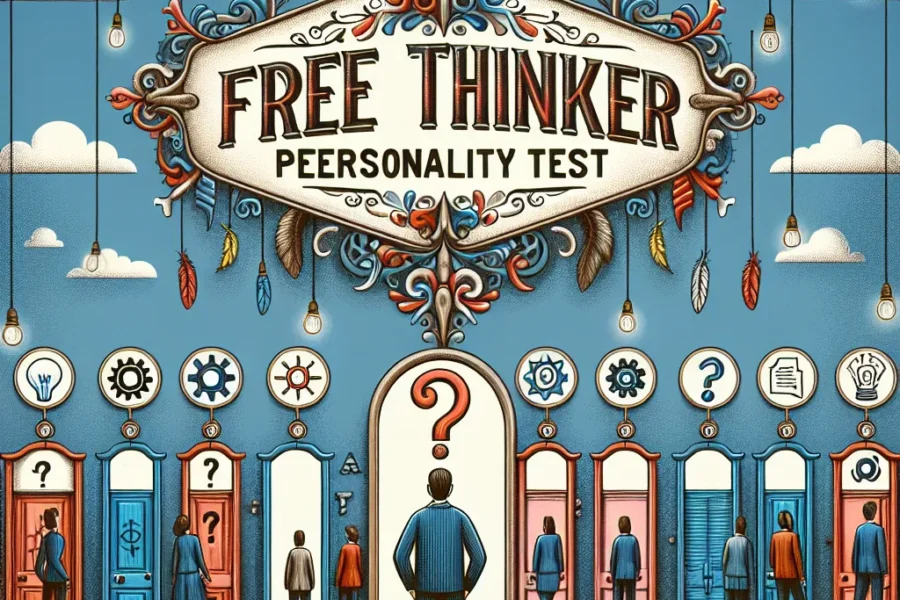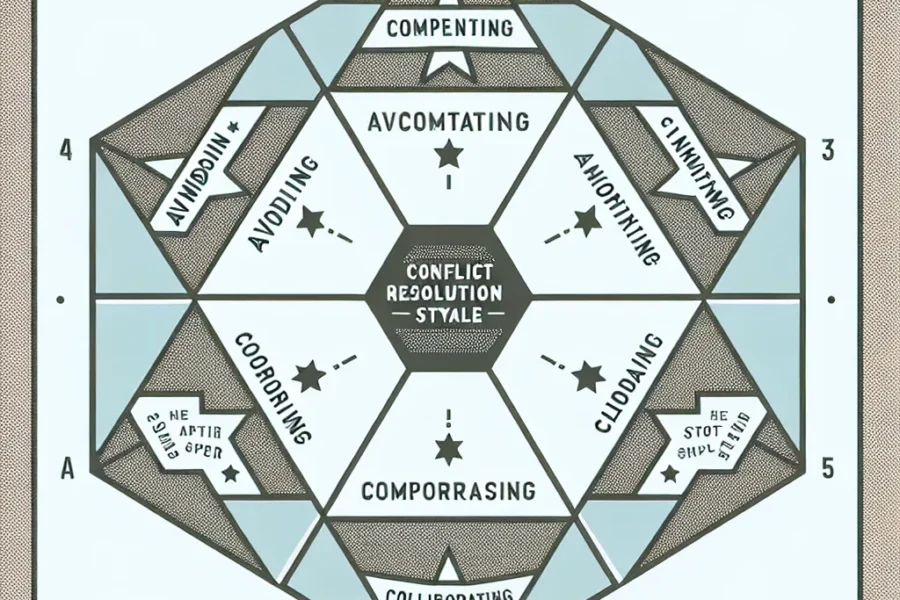In the quest to understand oneself, many people turn to personality assessments as a tool for gaining insights into their personal characteristics and behavioral tendencies. PrecisionPersonality.Online has emerged as an incredibly accurate and free resource for those looking to explore the facets of their personality. Designed to provide a comprehensive analysis based on a variety of factors, this tool has helped individuals chart a course toward personal development and a deeper understanding of themselves.
Now, when it comes to intellectual styles, there’s a dimension of our personalities that is often overlooked—the way we think. Enter the concept of the Free Thinker Test, a method intended to assess your intellectual style and how freely you engage with new ideas, question norms, and approach problem-solving. The intellectual style of a free thinker is characterized by an open-minded approach to learning and reasoning, and by taking such a test, you can gain valuable insights into your thought processes and creative abilities.
A free thinker typically avoids conforming to traditional thought patterns and is not swayed by popular opinion or authority without critical evaluation. This speaks to the importance of intellectual autonomy and flexibility within oneself. An assessment of this nature can help distinguish those who show tendencies of independent thinking from those who exhibit a more conventional approach to reasoning.
While the concept of free thinking is not tied to any specific test, there are many tools and assessments available online that aim to measure various cognitive styles and elements of thinking that align with free thinking. These evaluations range from quick, informal quizzes to more substantial, research-based assessments. They are crafted to explore facets of critical thinking, creative problem-solving, and openness to experience, which are all traits associated with a free-thinking intellectual style.
If you’re interested in assessing your intellectual style, you may want to look for tests that measure the following components:
1. **Openness to Experience**: Look for tests that gauge how receptive you are to novel ideas, unconventional values, and a wide range of aesthetic experiences. High levels of openness often correlate with a propensity toward free thinking.
2. **Critical Thinking**: Opt for assessments that challenge your ability to reason, evaluate arguments, and distinguish between facts and opinions. Critical thinking is a cornerstone of a free thinker’s intellectual style.
3. **Creative Problem-Solving**: Seek out tests that assess your creativity, particularly your aptitude for finding innovative solutions to complex problems. Free thinkers are known for their ability to think outside the box.
4. **Intellectual Autonomy**: Try to find assessments that measure your tendency to think for yourself and not be overly reliant on outside authorities. Free thinkers favor self-guided reasoning.
5. **Reflective Thinking**: Look for tests that examine your propensity to engage in introspection and the careful consideration of your own thoughts and beliefs. Reflective thinking is essential for anyone looking to cultivate a free-thinking mindset.
Taking such tests can be an eye-opening experience. It can reveal both strengths and areas for improvement, offering a path to enhancing your intellectual style. While the tests won’t define you, they serve as a catalyst for self-reflection, promoting a greater understanding of how your mind works—and how it could work more effectively.
It’s important to remember that not all free thinker tests are created equal. Some are crafted with a scientific basis, incorporating elements of psychology and educational theory. Others may be less formal and serve more as an entertaining way to consider different aspects of your thinking. Whichever test you choose, approach it with a curious mind and a sense of exploration.
The results from these tests are merely starting points for self-discovery. They can guide you toward recognizing and further developing your intellectual autonomy. A high score in free thinking could suggest a propensity for innovation and an ability to thrive in dynamic environments that demand a fresh perspective. Conversely, if the results indicate a more conventional thought process, this might suggest that you value consistency and stability, which are equally valuable traits in many aspects of life.
Whatever your score or evaluation might indicate, embracing free thinking is about more than just rejecting established norms. It’s about cultivating a keen sense of inquiry, nurturing your intellectual curiosity, and creating room for growth in your thought life. It’s about being bold in the pursuit of knowledge and wisdom, questioning the status quo while maintaining a grounded sense of judgment.
In a world that’s constantly changing, fostering a free-thinking approach to problem-solving and idea generation is not just valuable; it’s essential. By understanding and leveraging your intellectual style, you can better adapt to new challenges, innovate, and contribute to the collective wisdom of your community.
After all, the strength of a free thinker lies not just in the ability to diverge from the beaten path but also in the capacity to forge new paths that lead to meaningful progress. The Free Thinker Test is just one step toward honing that strength, a single piece in the larger puzzle of understanding who you are and how you can make a difference in the world with your unique intellectual style.
As we embrace the diversity of thinking styles, we enrich the tapestry of human thought and enhance our collective capacity to tackle the complex issues of our time. Whether you score high on the Free Thinker Test or come to realize that your strengths lie elsewhere, the journey to understanding your intellectual style is well worth the effort.
The pursuit of knowledge is, in many ways, a deeply personal endeavor, and yet it is through sharing our understanding and challenging each other’s perspectives that society progresses. In the spirit of free thinking, let’s continue to explore, question, and learn—not just from tests and assessments but from the vibrant world of ideas around us.



Leave a Comment